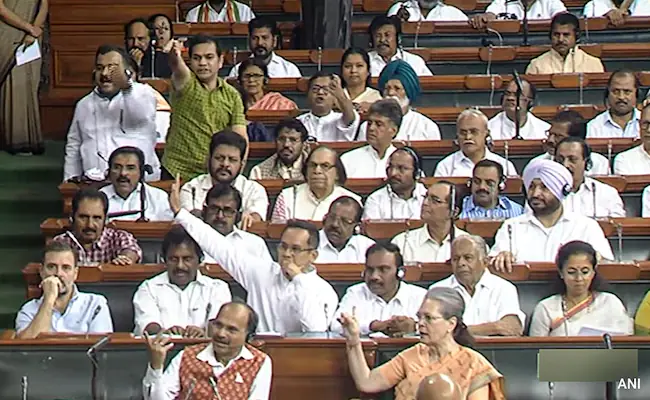Kiren Rijiju Says Opposition Will Regret Bringing No-Trust Vote: 10 Points
New Delhi: The Day 1 of the debate on the No-Confidence Motion against the Narendra Modi government saw the Congress arguing against “precedent” in Manipur and accusing the government of creating a great divide in the state
Here’s your 10-point guide to this big story:
- Congress MP Gaurav Gogoi, who opened the debate, said the opposition bloc INDIA was forced to bring the no-confidence motion against the government to break Prime Minister Narendra Modi’s “vow of silence” on Manipur. He alleged that a government which talks about “one India has created two Manipurs — one living in the hills and the other in the valley”.
- He also brushed off the government’s argument that no Prime Ministers have spoken on Manipur after previous instances of violence, pointing out that the BJP’s iconic leader and former Prime Minister Atal Bihari Vajpayee had visited Gujarat during the 2002 communal riots.
- Mr Gogoi said there are three reasons why PM Modi is “silent” — “failure of the state government”, “failure of the home department and national security arrangement”, and because he does not want to accept that he made a mistake. “Manipur demands justice… If Manipur is burning, whole of India is burning,” Mr Gogoi said.
- Union minister Kiren Rijiju said the Opposition will regret bringing the No-Confidence Motion because it comes at the “wrong time and the wrong manner”, given India’s current stature in the world.
- He also questioned how the Congress is flagging Manipur today, since during the days of the UPA government, “We repeatedly begged (then Prime Minister) Manmohan Singh to pay a little attention to the northeast”.
- BJP MP Nishikant Dubey said PM Modi in the BJP parliamentary meeting earlier this morning said that this is not a vote to express distrust in the government, but to see who can trust whom in the opposition. Targetting former Congress chief Sonia Gandhi, he said she now “has only two jobs — ‘Set’ the son and give presents to the son-in-law.”

